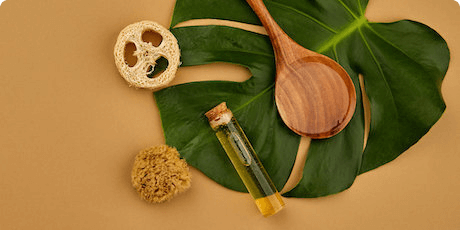Brands, manufacturers, and ingredient suppliers in the personal care and cosmetics industry are under scrutiny when sourcing sustainable, ethical, and transparent raw materials. At Stephenson, we stand by our decision to use RSPO certified palm oil in our products. We know that when sustainably sourced, Palm Oil has a significantly lower impact on the environment than other vegetable or plant-based oil sources.
We firmly believe that Palm Oil has an important functional role to play in the formulation of our comprehensive range of soaps, syndets, ingredients, and high-performing esters. We also believe that if sourced responsibly, Palm Oil can act as a force of good for communities and wildlife in the areas where it is grown, primarily in Malaysia and Indonesia.
Our team works hard to foster a more environmentally conscious personal care industry. A big part of our sustainability drive is focused on partnering with suppliers that comply with The Roundtable on Sustainable Palm Oil (RSPO) certification. RSPO offers brands and manufacturers, and ultimately your customer, the assurance that the Palm Oil or Palm Oil derivatives in a final product is harvested from deforestation-free areas; acting as a force of good when it comes to protecting and preserving wildlife habitats and putting the welfare of communities, smallholders and farmers first.
We support RSPO-certified palm oil
Producing products with sustainability in mind is crucial for all industrial sectors. Today’s informed consumers are not only demanding high-quality, efficient products but also products that are natural and organic with verified ethical and sustainable sourcing and production.
At Stephenson, we realise the importance of protecting natural habitats and biodiversity. When a forest ‘falls’ it compromises hugely important ecosystems. This is also true for peatlands, known as wet forests, which store massive amounts of carbon that can escape into the atmosphere when destroyed.
These are just some of the reasons supporting RSPO certification is so important. And it's paying off. It is now estimated that deforestation is declining in Indonesia, the world’s largest producer. From hitting an all-time low in 2021, we are seeing similar trends in Malaysia and other palm oil-producing countries.1
A high-yield, functional super ingredient
As one of the highest-yielding plant oils, palm oil uses less land to produce equivalent quantities of oils when compared to assets such as soyabean, rapeseed, and sunflower.2
In addition, Palm Oil is the only crop that yields two different oils: Palm Oil and Palm Kernel Oil. Current estimates point to the fact that up to 70% of beauty or personal care products contain one or more or more Palm Oil derivatives.3 Palm Oil is seen as one of the most important raw materials for the personal care and cosmetic industry and is a great plant-based alternative to synthetic and animal-based chemicals.
In formulations or new product development, Palm Oil can add many functional characteristics not achievable with other vegetable oils. It is truly a super ingredient, featuring little odour and colour, a great shelf life and is cost-effective to produce.
The stellar characteristics of Palm Oil are fundamental to its reputation and dominance as the world’s most versatile vegetable oil. The bottom line is that palm oil remains a great choice in formulating personal care products such as soaps and syndets.
At Stephenson, we believe that by supporting RSPO-certified palm oil and palm oil derivatives, we are helping to move the industry towards sustainability and protecting the wildlife and diversity of critically important ecosystems.






























